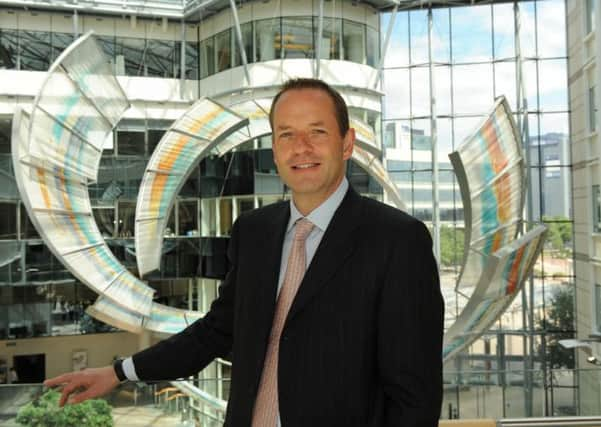Volatility will be key feature of 2015


The Leeds-based firm, one of Britain’s largest independent stockbrokers, said almost a quarter of respondents chose GSK as the stock to watch next year.
The share price of Britain’s largest drugmaker lost around 15 per cent of its value in 2014 after a period of lacklustre performance.
Advertisement
Hide AdAdvertisement
Hide AdBut chief executive Sir Andrew Witty put a floor under the company’s dividend in October by pegging the 2015 payout to the 2014 level.
He aims to save £1bn in annual costs over three years, one of several moves to improve GSK’s long-term growth profile and reduce complexity.
He is also planning a $20bn asset-swap deal with Swiss rival Novartis, which is due to complete in the first half of next year.
Rolls-Royce and EasyJet were the second and third favourites in Redmayne-Bentley’s annual internal survey, which polled 94 brokers and managers last month.
Advertisement
Hide AdAdvertisement
Hide AdA key feature of next year will be volatility, the survey found, with the top “Bear” issues singled out as Europe slipping into recession, a slowing of the global economic recovery, an adverse result in the UK general election, concerns over deflation and tensions in the Middle East.
Respondents said the 2015 election is likely to have more of an influence on domestic markets than those of the past, with the prospect of a hung parliament creating uncertainty.
While Labour have a narrow overall lead in opinion polls, the Conservatives trump them when voters are asked about economic competence.
But the mainstream parties are facing an additional threat from the UK Independence Party, which appeals to disenfranchised voters of all persuasions.
Advertisement
Hide AdAdvertisement
Hide AdPolitical uncertainty aside, continuing low interest rates would help keep the market bullish in 2015, according to three quarters of those surveyed.
Nearly half predicted that the United States’ economic recovery would gather momentum in 2015.
The world’s largest economy grew at a 5 per cent clip in the third quarter, its quickest pace in 11 years.
Some 76 per cent of respondents named the US as their favourite overseas market for next year, followed by the Far East in general, India, emerging markets in general and Europe.
Advertisement
Hide AdAdvertisement
Hide AdAlmost four fifths placed Russia as the overseas market to avoid for next year. Russia faces the prospect of three more years of sanctions and stagnation, its central bank said this week, honing its tactics to defend the rouble from the fallout of President Vladimir Putin’s Ukraine policies and dependence on oil revenue.
Almost half of those surveyed said Brazil was the second overseas market to avoid, followed by Europe, China and Japan.
Latin America’s biggest economy has remained sluggish since 2011. Global demand for the country’s commodities has cooled, inflation has remained stubbornly high and investor sentiment soured due to repeated, often erratic, government intervention in the private sector.
Technology dominated the list of most favoured sectors for 2015, winning the back of nearly half of respondents, followed by pharmaceuticals, mining and travel and leisure.
Advertisement
Hide AdAdvertisement
Hide AdThe sectors to avoid are retail, oil and gas, mining and banking, according to the survey.
Overall, the survey shows renewed hope for the blue chip index in 2015, with 83 per cent of respondents predicting that the FTSE 100 will break through the 7,000 barrier.
Predictions range from a high of 7,218 to low of 6,274, a spread of nearly 1,000, highlighting the volatility that could yet derail growth.
Glass half-full or half-empty?
Top-ranking bulls:
1. Continuing low interest rates (77 per cent)
2. US recovery momentum (48 per cent)
3. More central bank stimulus (45 per cent)
4. Mergers and acquisitions (36 per cent)
5. Deflation avoided / modest inflation (29 per cent)
Top-ranking bears:
1. Europe slipping into recession (63 per cent)
2. Slowing global economic recovery (62 per cent)
3. Adverse UK general election result (53 per cent)
4. Deflationary concerns (37 per cent)
5. Middle East tensions (31 per cent).